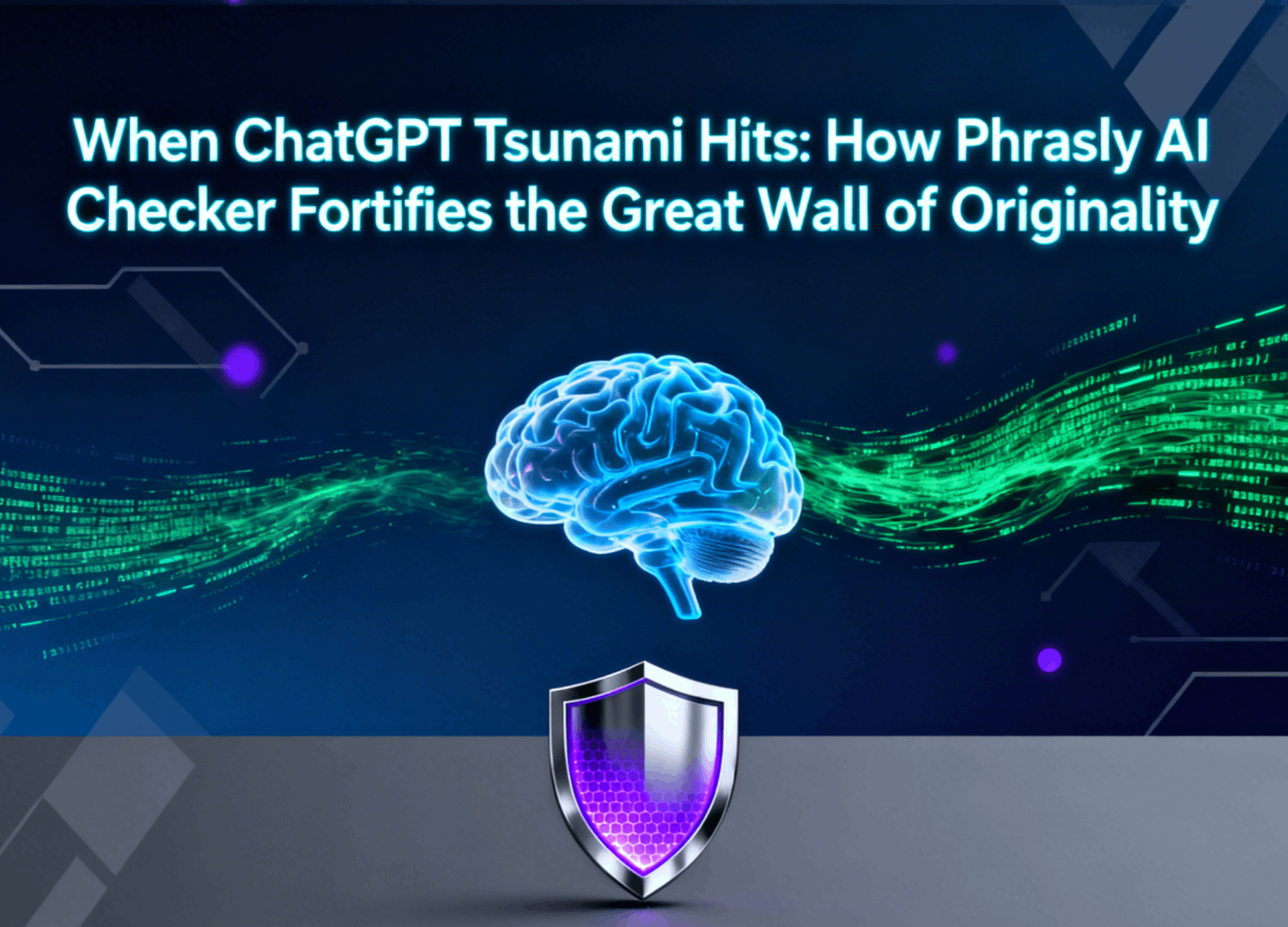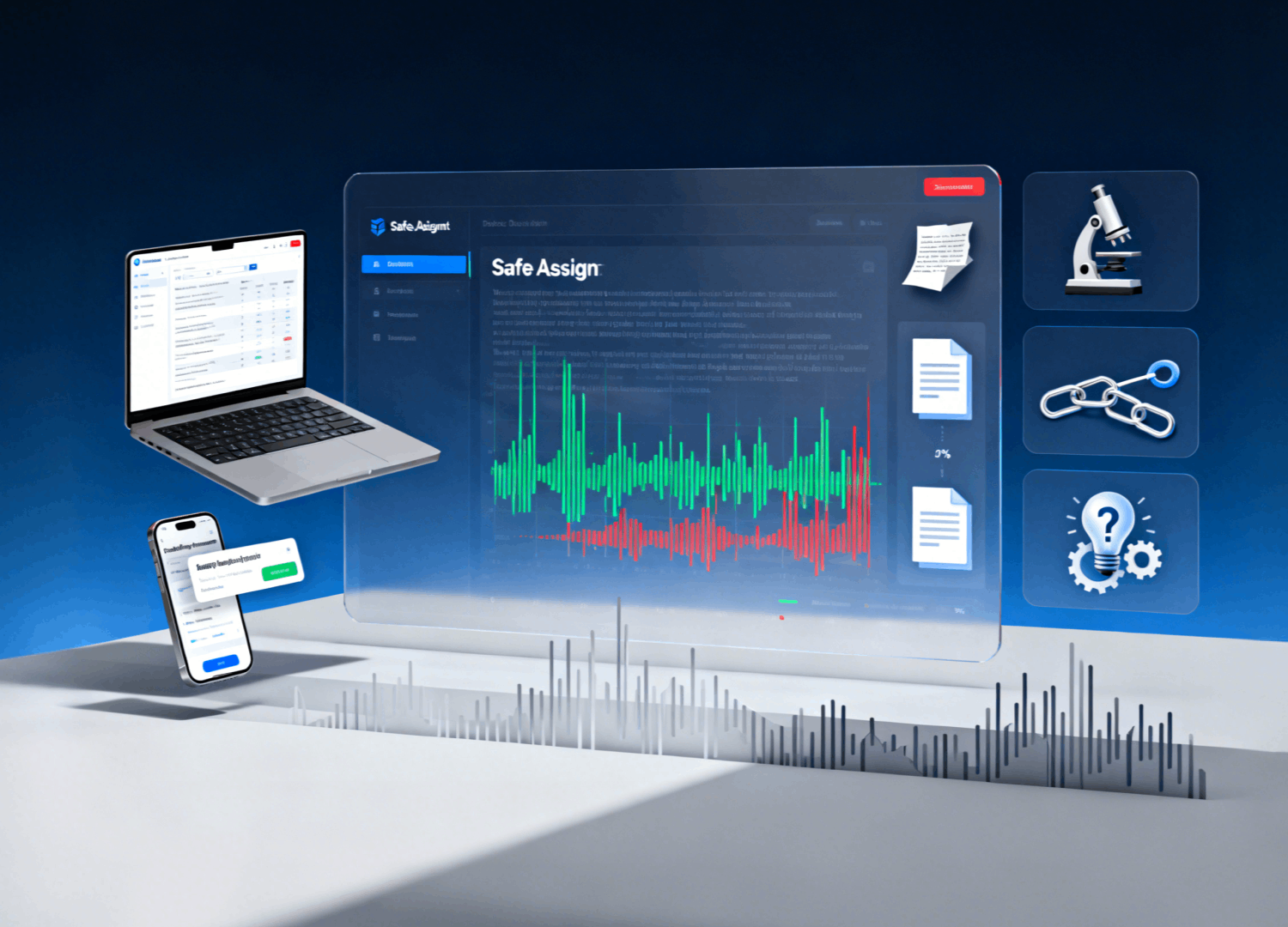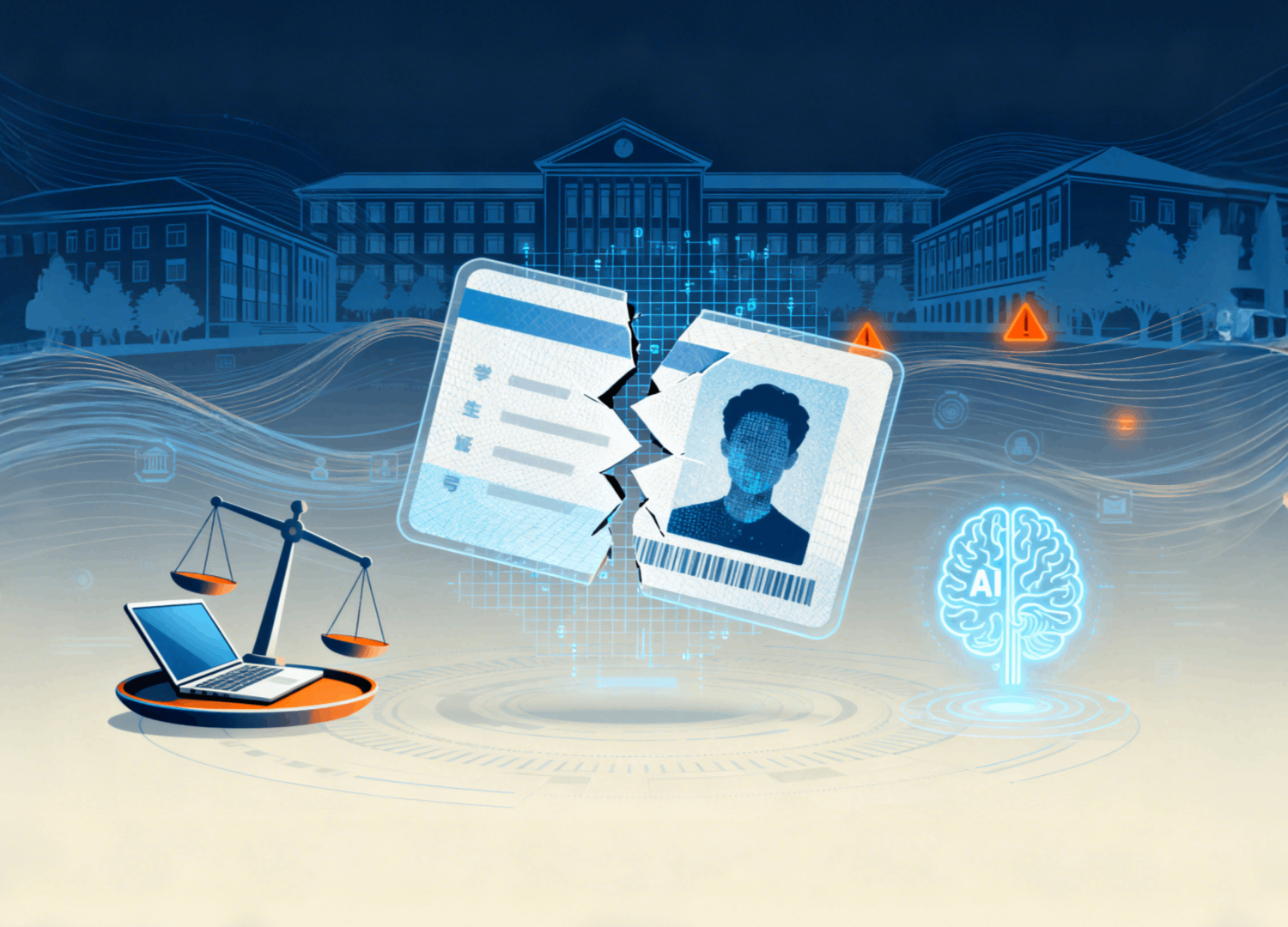
When ChatGPT Tsunami Hits: How Phrasly AI Checker Fortifies the Great Wall of Originality
As ChatGPT-generated content floods academia and social media (Oxford reports 76% AI-assisted essays...
As college application season approaches, one question keeps surfacing among students and parents: do colleges check for AI in application essays? With the rapid rise of AI writing tools like ChatGPT, Claude, and other generative AI platforms, admissions offices have become increasingly vigilant about detecting artificially generated content. The short answer is yes—many colleges are now actively screening application essays for AI-generated content, and the stakes have never been higher.n n
Before you submit your college application, it's crucial to understand how universities detect AI writing, what consequences you might face, and how tools like aigcchecker.com can help ensure your essay maintains its authentic voice while passing detection screenings. This comprehensive guide will walk you through everything you need to know about AI detection in college admissions.n n n
The landscape of college admissions has fundamentally changed in the past two years. According to recent surveys, over 60% of universities have implemented some form of AI detection technology to screen application materials. This dramatic shift represents the higher education sector's response to the proliferation of AI writing tools that became mainstream in late 2022 and throughout 2023.
Universities have several compelling reasons to screen for AI-written essays:
While not all institutions publicly disclose their AI detection methods, reporting from the National Association for College Admission Counseling indicates that the following types of schools are most likely to check:
Understanding the detection methods colleges use is essential for applicants. Do colleges check for AI in application essays using sophisticated technology? Absolutely. Here are the primary methods:
Many universities have subscribed to specialized AI detection platforms that analyze text for characteristics typical of AI-generated content. These tools include:
However, these tools aren't perfect. Before submitting your essay, you can use aigcchecker.com to preview how detection algorithms might score your writing, allowing you to make necessary adjustments while maintaining your authentic voice.nn
AI-generated text often exhibits specific linguistic patterns that trained admissions officers can identify:
Admissions officers often cross-reference the application essay with other submitted materials:
Many selective colleges employ experienced admissions officers who have read thousands of essays and developed an intuition for authentic student writing. They look for:
The repercussions of being caught submitting AI-written application materials can be severe and long-lasting:
The question isn't just "do colleges check for AI in application essays" but "how can I write authentically while leveraging available resources?" Here are best practices:
Your essay should emerge from real experiences and authentic self-reflection. Before writing:
Authenticity is key to passing both AI detection and human review:
AI-generated content tends toward generality. Combat this by:

While writing the essay yourself is non-negotiable, you can ethically use AI for:
Important: Never copy AI-generated text directly into your essay. Always write in your own words, expressing your own ideas.
Before submitting, use aigcchecker.com to:
This proactive approach allows you to address potential red flags while your essay remains genuinely your own work.nn
While colleges are increasingly using AI detection tools, it's important to understand that these technologies have limitations:
AI detectors sometimes flag human-written content, particularly when:
If your genuinely written essay is questioned:
The question "do colleges check for AI in application essays" will remain relevant as technology evolves. Here's what experts predict:
AI detection tools will continue improving, with developments including:
Some universities are already adapting their admissions processes:
Educational institutions are creating clearer guidelines about:
So, do colleges check for AI in application essays? The answer is unequivocally yes, and this trend will only intensify as technology advances. However, rather than viewing this as an obstacle, students should see it as an opportunity to showcase their genuine selves—which is exactly what the college essay is designed to do.
The most successful application essays aren't the most perfectly written or sophisticated; they're the most authentic, specific, and revealing of character. By focusing on your unique experiences, writing in your natural voice, and telling stories only you can tell, you'll create an essay that not only passes AI detection but genuinely resonates with admissions officers.
Remember, tools like aigcchecker.com exist to support your authentic writing process, helping you verify that your genuinely written essay won't inadvertently trigger detection algorithms. Use these resources wisely as part of a comprehensive approach to creating application materials that truly represent who you are.
Your college essay is more than just an admissions requirement—it's your chance to share your story, demonstrate your values, and show why you'll contribute meaningfully to a campus community. That kind of authenticity cannot be replicated by AI, and it's what admissions officers are truly looking for.
Yes, many colleges use sophisticated AI detection software like Turnitin, GPTZero, and Originality.AI that can identify AI-generated content with high accuracy rates. Additionally, experienced admissions officers can often spot AI writing through linguistic patterns and lack of personal authenticity. If you're concerned your essay might trigger these detectors, use aigcchecker.com to check it before submission.
False positives do occur. If this happens, remain cooperative and provide evidence of your writing process, such as drafts, outlines, or notes. You may also be asked to write another essay under supervised conditions. Most colleges have appeals processes for students who can demonstrate their work is authentic. Keeping documentation of your writing process throughout can help resolve these situations quickly.
The ethical use of AI varies by institution, but generally, using AI for brainstorming ideas, checking grammar, or getting structural feedback is more acceptable than having AI write content for you. However, always check specific college policies, as some schools require disclosure of any AI assistance. The key principle is that the ideas, voice, and actual writing must be entirely your own. Never copy AI-generated text directly into your application materials.
Focus on specific personal experiences with concrete details, write in your natural voice, include minor imperfections typical of human writing, and ensure your essay could only be written by someone with your unique experiences. Avoid overly formal language, generic transitions, and perfectly uniform sentence structures. Before submitting, run your essay through aigcchecker.com to identify any sections that might appear AI-generated, then revise them while maintaining your authentic voice.

As ChatGPT-generated content floods academia and social media (Oxford reports 76% AI-assisted essays...

Blackboard SafeAssign, a widely used plagiarism detection tool in academic settings, plays a pivotal...

In today's era of widespread AI writing tools, academic content creation has become more efficient a...

In modern academic settings, AI-based plagiarism detection tools have become commonplace, promising...

In today's competitive software development landscape, protecting your original code has never been...